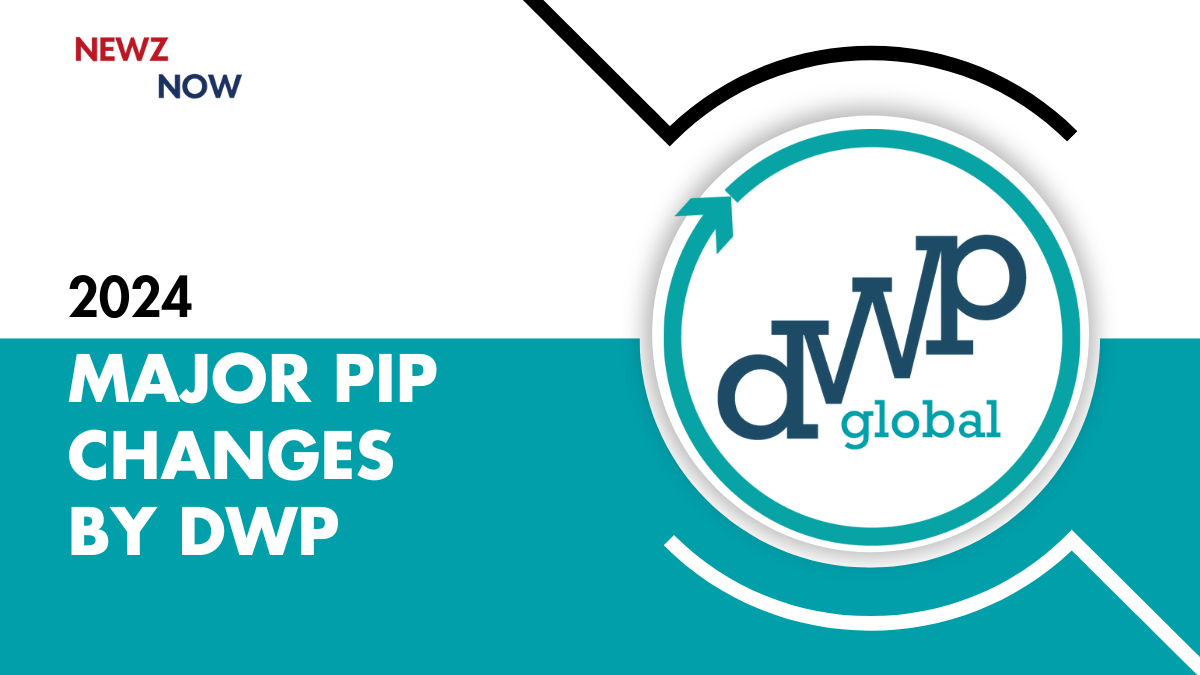The Personal Independence Payment (PIP) is a vital financial support system in the UK, designed to assist adults with long-term health conditions or disabilities. Since its launch in 2013, PIP has played a critical role in helping millions of people manage the extra costs related to their care, mobility, and daily needs. However, recent changes to the system have sparked a mix of hope and concern, as some see the need for improvement, while others worry about its complexities.
Let’s dive into these changes, what they mean for recipients, and how the government is planning to make the system more supportive and fair.

Major PIP Changes By DWP
PIP provides essential financial relief for individuals dealing with the challenges of disability. It helps cover extra living costs, such as:
- Mobility aids and transportation
- Care services
- Medical equipment
- Daily essentials like food and utilities
While PIP has been a lifeline for many, the process of applying and qualifying has often been criticized for being overly complex and difficult. The eligibility assessments have frustrated both applicants and advocates, as they sometimes prevent those in need from accessing timely support.
The PIP Consultation: Steps Towards Change
In April, during a notable speech referred to as the “sick note generation” address, then-Prime Minister Rishi Sunak addressed the challenges within the PIP system. This sparked a wave of conversation about how PIP could better serve people with disabilities. Following this, the Department for Work and Pensions (DWP) introduced the “Modernising Support Green Paper,” proposing significant reforms to make PIP more accessible.
Key Goals of the Reforms:
- Simplifying the claim process
- Improving the fairness of assessments
- Reducing stress for applicants by streamlining the application experience
The overarching aim of these reforms is to ensure that the PIP system helps people in need without unnecessary complications.
Proposed Shifts: From Regular Payments to One-Time Grants and Vouchers
A significant change being discussed is shifting from regular, ongoing payments to one-time grants and vouchers.
Currently, PIP provides monthly payments, which help recipients manage their ongoing expenses. However, the new proposal suggests replacing this with lump-sum grants for larger disability-related expenses, such as home modifications or specialized medical equipment.
Pros:
- Eases the burden of large, upfront costs
- Provides flexibility for big purchases
Cons:
- Potential loss of regular income to cover daily needs
- Uncertainty for those who rely on consistent financial support
This shift aims to make funding more immediate for large expenses but raises concerns about how individuals will manage day-to-day costs without the stability of monthly payments.
Introduction of a Catalogue Scheme for Support Items
Another major proposal involves a cataloguing system for disability-related support items. This system would offer a pre-approved list of essential items such as:
| Category | Examples |
|---|---|
| Mobility Aids | Wheelchairs, walkers |
| Home Modifications | Ramps, handrails, bathroom adjustments |
| Medical Equipment | Oxygen tanks, specialized beds |
This system aims to make it easier for people to access necessary items quickly and at low or no cost.
However, some critics argue that the catalogue may not cover all individual needs, leaving certain people without adequate resources.
Current Points-Based System: What Might Change?
At present, PIP uses a points-based system to assess how disabilities affect individuals’ daily living and mobility. The government is considering updates to make this system more reflective of the actual financial burdens people face due to their disabilities.
Proposed Changes:
- Updating Descriptors: Revisions to better reflect how people use aids for daily living.
- Changing Qualifying Periods: Altering the duration required for someone to qualify for support.
These changes aim to better align the system with the real-life needs and expenses of living with a disability.
Ending Reassessments for Lifelong Conditions
One of the most frustrating aspects of the current PIP system is the requirement for regular reassessments, even for individuals with permanent disabilities. This process can be stressful, and many believe it’s unnecessary.
Proposed Reform:
The DWP is looking to eliminate these reassessments for claimants with lifelong conditions, allowing them to focus on living their lives without the constant worry of proving their need for support again and again.
A Simpler Assessment Process: Less Stress, More Clarity
Currently, applying for PIP can feel overwhelming. Gathering medical evidence and navigating the points-based system is tough for many. To address this, the DWP is exploring a more straightforward assessment process.
Simplified Process:
- Specific conditions may automatically qualify for PIP with a doctor’s certification, skipping the detailed assessment.
- This would reduce the burden of medical evidence and subjective decision-making.
For many, this simplification would mean quicker, less stressful access to financial support.
Public and Advocacy Group Responses
Reactions to these proposed changes have been mixed:
Positive Feedback:
- Simplified assessments
- Ending reassessments for permanent disabilities
Concerns:
- Shift to one-time grants over monthly payments
- Lack of flexibility in the catalogue system for support items
Many see these reforms as a step in the right direction, but there are concerns about how they might impact the financial stability of some recipients.
The Long-Term Goal: A Fairer PIP System
Ultimately, the reforms aim to create a PIP system that is more compassionate, practical, and responsive to the real needs of people with disabilities. By listening to feedback from disability groups, claimants, and experts, the DWP is working to improve the system and ensure that it enhances the quality of life for those who depend on it.
With ongoing consultations and discussions, these changes could lead to a PIP system that is more supportive and user-friendly—helping individuals navigate the challenges of daily life with dignity and financial security.
Click here to learn more.